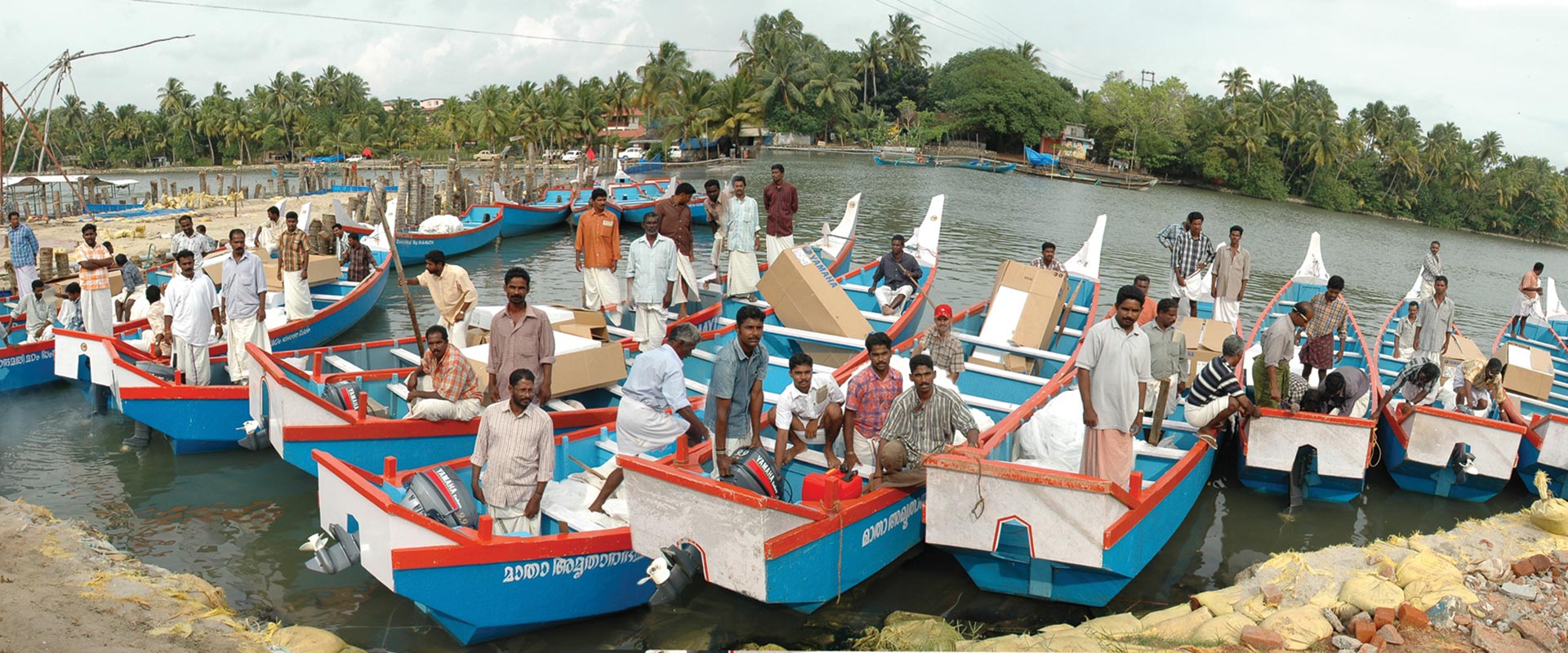Welcome to the new Amma.org
We’ve merged the Amrita World and Embracing the World websites into this new site.


Welcome to the new Amma.org
We’ve merged the Amrita World and Embracing the World websites into this new site.



The relief and rehabilitation work conducted by Mata Amritanandamayi Math in the wake of the 2004 Indian Ocean Tsunami stands today as one of the most multi-faceted, comprehensive and sustained disaster-relief projects ever undertaken by a nongovernmental organization. What made our work unique was its holistic nature – every aspect of the tsunami survivors’ lives was considered and improved. In the end, many survivors stated that in terms of their quality of life and economic independence, they were better off after the tragedy than they had been before.
By the end of 2006, after two years of relief effort, the Mata Amritanandamayi Math spent ₹200 crore (US $46 million)* on tsunami relief. As part of this effort, Amma’s organization:
* Currency conversion based on currency values current at the time of expenditure
Amma offers us the possibility to connect online with her on a daily basis. During these livestreams, we can meditate with Amma, chant bhajans (devotional singing) and hear spiritual teachings.
Registration is required to access these livestreams: